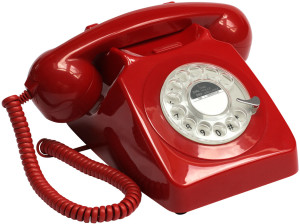Who decides if you are overqualifed and why? The employer does. That’s who.
Why is there so much focus on overqualifed? I don’t know. I, of course, do have an opinion on the matter, but I doubt that will help you accelerate your search. However, maybe I can help you by looking at the issue a bit differently.
Have you ever said to a door to door salesperson, “Not today, thank you” or the Boy Scout “No thank you, I bought caramel corn from another scout before you” or “we don’t eat caramel popcorn, thank you for stopping by”? In many cases the dreaded statement “You are overqualified for this position” is just simply a no thank you.
Yes, I know the dreaded statement stings. It does not feel like ‘no thank you’ or does it?
What happens if you reframe “You are overqualified” to “No, thank you”?
My bet is you think the later stings less, but does it really? Think about it. It is still rejection. Rejection is, in my view the underlying issue with most of the conversations around the issue and statement “You are overqualified”.
No one (at least no one I know) likes to be rejected. And almost no one I know likes to reject others.
Especially, if you are in business and interviewing someone or talking to someone with good skills, and loads of experience. Most people don’t like to be mean or reject another person, even when they don’t personally connect. Sure there are some that do, you know them, and I do too.
What would happen if you heard “No, thank you” in lieu of “You are overqualified for this position”? Think about it!
I once knew a hiring manager who, said “thank you” and allowed someone else to say “No, thank you”. Here is how he did it – during the each interview he was very good at finding something good about all the candidates he rejected. He picked out something good about the candidate and made a mental note. At the end of the interview, he confirmed the candidate’s home phone number, and he called each one after an interview. Usually he placed the call before the person arrived home and left a message, he would share the one good point he noted and thank them for interviewing. He would end the message with ‘good luck, your <whatever the good point was> will be of value to your next boss. I learned that good quality he shared with the candidate was always a quality he appreciated, but he did not value at that point in the role that he was attempting to fill.
Why, did he do this? Well, I never ask him, yet here is why I think he did it.
He cared about people and the feelings of people. He saw value and appreciated what each person offered. He appreciated the time the person set aside to interview. He did not like rejection, and he might want to hire the person for another position some day. He was building a team and running a business. The call was “rejection protection” – so that in the future if he had a role for the person, the person would recalled him in a positive light in lieu of the hiring manager who had once rejected them. It helped him build relationships and create goodwill.
The end result – still the rejection, but the rejection did not address a lack. It appeared to sting less.
In my view it can be hard to build talented teams when you focus on lack. Yet most hiring systems and hiring situations will reject several people. The process in most organizations is look at many, interview some, hire one.
The truth is you were not selected and someone else was for whatever the reason. That feeling is rejection.
Yet if you reframe your feelings, and focus on your value and not the ‘over’ or ‘under’ or what you lack, you may be surprised at what you attract. Why continue to focus on the lack?
My suggestion – understand you will be rejected from time to time, learn to cope with it. You don’t need to like it, crave it, nor attract rejection with continued focus, thought and conversation.
I would also suggest you not dwell on the rejection, or try hard to figure out why you were rejected, nor rail against the company, your experience or your age. The rejection may be a blessing you can not yet count. Reframe it as “No thank you”.
One day on the radio I heard, rejection in dating referred to as protection from a bad situation. What a point of view!
What would happen in your job search is you reframed the rejection or the statement “You are overqualified” as “No, thank you – I value you as a person and want to protect you from this situation”?
Just a different point of view on “You are overqualified”.
Feel free to share your comments below.
accelerate your search, job search, matue worker, overqualifed, rejection
 The phone rang and the question was, “Why do they hate me?”
The phone rang and the question was, “Why do they hate me?”



